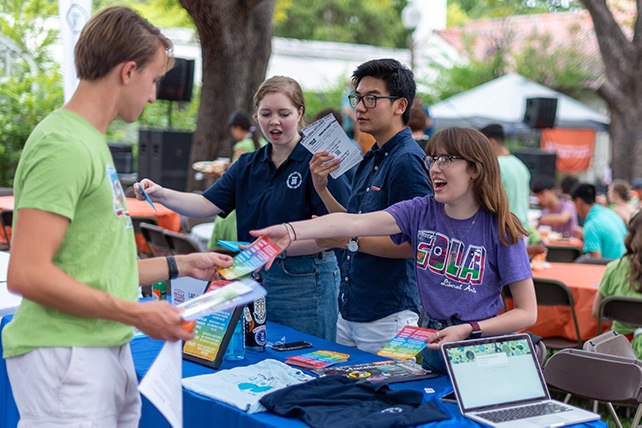Human Osteology
Human remains from archeological investigations are housed in a separate, quiet, climate-controlled room. TARL has completed the comprehensive inventories and conducted consultation as required by the Native American Graves Protection and Repatriation Act of 1990 (NAGPRA).
The disposition of human remains, and associated objects affiliated with particular Native American Tribes, will be determined by each tribe. Any access to human remains requires a completed Request for Access to Human Remains form and prior consultation.
- Step 1: Policy for Access to Human Remains
- Step 2: Guidelines for Research Involving Human Remains
- Tab Option 3
- Tab Option 4
- Tab Option 5
This document explains TARL's policy for access to human remains: Policy for Access to Human Remains (download PDF file)
Only legitimate research is permitted, and only after consultation is completed. All access to human remains requires documentation of consultation submitted with the Request for Access form. A processing fee will apply.
This document lists stipulations and requirements for research that involves human remains: Guidelines for Research Involving Human Remains (download PDF file)
It must be read, agreed to and signed prior to accessing human remains at TARL.
NAGPRA
The University and the Texas Archeological Research Laboratory are committed to
The Museum of Anthropology works closely with Tribal Nations to provide intellectual and physical access to the collection with the goal of one day repatriating all of the Native American human remains and NAGPRA cultural items. In recent years, we have focused on developing consensus on the disposition of human remains (and associated funerary objects) that could not be culturally affiliated, as well as working towards the repatriation of remains already published in Notices of Inventory Completion.
Please contact the NAGPRA Coordinator for more information on NAGPRA at DU.

TARL & NAGPRA
In compliance with the Native American Graves Protection and Repatriation Act (NAGPRA), the Texas Archeological Research Laboratory (TARL) has reported eligible cultural items and ancestral remains both to the National Park Service and to the affiliated tribes, or tribes with relevant interest. TARL is fortunate for the relationships and visits that have been formed since NAGPRA's inception, and remains dedicated to the repatriation process of ancestral remains. We continue to learn through our commitment to ongoing consultation with Indigenous communities. TARL recognizes that there are many tribal interests as we continue to listen, and with humility, we strive to collaborate and improve in our care of Indigenous ancestral remains. In line with this value, we are actively reviewing past policies and procedures in order to better align our practices with tribal wishes and increased access for tribal partners. TARL serves to advocate for the ancestors, tribal wishes, and collaborative research through respectful and transparent communication.
We have used, and continue to use, terms such as ‘affiliated funerary objects’ and ‘culturally unidentifiable individuals’. Such language is utilized in order to convey clarity and adherence to the law, but TARL recognizes these terms are equally used for ancestors of many Indigenous groups of significantly different cultural backgrounds. This generalization is applied with the intention to advocate for the ancestral remains to the best of our abilities, within the bounds of the law.

For further inquiries, please contact Annie Riegert, Head of Human Osteology and NAGPRA Coordinator.
